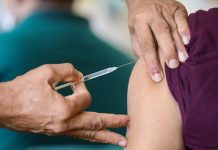The Gamaleya Center’s director, Alexander Gintsburg, told Izvestia that Russia has developed a technical framework for a single vaccination against flu and coronavirus, and that clinical trials would begin at the end of 2022.
Those who have been vaccinated, in his view, will generate memory cells that will support a greater antibody level. The expert stated that when the overall level of immunization rises, it would be possible to revaccinate at periods other than every six months.
The jab’s technical foundation is based on a hybrid vaccination against rotaviruses, and the center is also working on a vaccine against different types of coronavirus.
“The technical basis for this has already been developed, but clinical studies have yet to begin. If everything goes well with this platform, if exactly this technology works, we’ll go on to a more complicated version combining flu hemagglutinin antigens and coronavirus S-proteins in a single vaccine. Clinical studies will commence at the end of next year “, the expert said.
The need for a combined vaccine against flu and coronavirus stems from the fact that the combination of these two illnesses substantially enhances the intensity and mortality of seasonal flu, according to Viktor Zuev, a prominent researcher at the Gamaleya Research Center.
According to him, being vaccinated against one or the other is insufficient since these are two distinct viruses, and an interval of 2-3 weeks should be followed between injections before a single vaccine is created.
Other Russian research institutes, in addition to the Gamaleya Center, are developing their own single vaccinations against flu and coronavirus. The state Research Center of Virology and Biotechnology will begin animal testing of its vaccine in November 2020.
On September 17, Russia’s Ministry of Health announced the start of pre-clinical testing of flu and coronavirus vaccination compatibility. Russian Health Minister Mikhail Murashko said on October 4 that the “initial findings are promising.”












